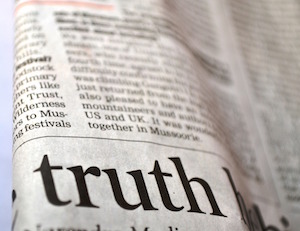OPINION: The first three industrial revolutions were based on steam power, electricity and computers and liberated humankind from animal power, introduced mass production and brought digitasation to billions across the globe.
The Fourth Industrial Revolution is something quite different and may even change what it means to be human. It is all about the Internet of Things, the Internet of Systems, combining cyber-physical systems.
The concept was introduced by Professor Klaus Schwab, the founder and executive chairman of the World Economic Forum, in his book The Fourth Industrial Revolution. He writes about how new technologies are fusing the physical, digital and biological world and impacting all disciplines, economies and industries.
Klaus says in the introduction of his book that, “On the societal front, a paradigm shift is underway in how we work and communicate, as well as how we express, inform and entertain ourselves.” One can immediately see that this will have a profound effect on the media industry as a whole.
Klaus differentiates the fourth industrial revolution from the previous three, for three reasons:
Velocity: Contrary to the previous industrial revolutions, this one is evolving at an exponential rather than linear pace. This is the result of the multifaceted, deeply interconnected world we live in and the fact that new technology begets newer and ever more capable technology.
Breadth and depth: It builds on the digital revolution and combines multiple technologies that are leading to unprecedented paradigm shifts in the economy, business, society, and individually. It is not only changing the “what” and the “how” of doing things but also “who” we are.
Systems Impact: It involves the transformation of entire systems, across (and within) countries, companies, industries and society as a whole.”
An article about how to respond to the Fourth Industrial Revolution on the World Economic Forum’s website states, “The possibilities of billions of people connected by mobile devices, with unprecedented processing power, storage capacity, and access to knowledge, are unlimited. And these possibilities will be multiplied by emerging technology breakthroughs in fields such as artificial intelligence, robotics, the Internet of Things, autonomous vehicles, 3-D printing, nanotechnology, biotechnology, materials science, energy storage and quantum computing.”
Need for credible sources of information
It is difficult to predict exactly what this will mean for newspapers, but certainly it will change the way that news is gathered and reported and newspapers will have to adapt with changing technologies to remain relevant. It is also difficult to know what kind of impact this will have on advertisers, but one thing is certain, there will always be a need for credible and trusted sources of information and news. Perhaps even more so, the more people have access to education and information, the greater the need for reputable publications, irrespective of the transformed form of delivery.
Bernard Marr speaks about the Fourth Industrial Revolution in an article on Forbes, “In short, it is the idea of smart factories in which machines are augmented with web connectivity and connected to a system that can visualise the entire production chain and make decisions on its own. And it’s well on its way and will change most of our jobs.”
News delivery platforms may well become increasingly automated, but analysis and opinion that form the basis of informed news storytelling are human functions and it will take quite some time before artificial intelligence can report news intelligently. News produced by humans will endure and if newspapers transform as they have already been doing in the digital age, they will more than likely play a vital role as the Fourth Estate of the fourth revolution.
In the book ‘Spending Money in the Digital Age – How to Navigate the Media Flow’ by Hamish Pringle and Jim Marshall it states (p31), “Perhaps the most powerful way in which media selection can consistently benefit the advertising message is through editorial relevance. …. As new technologies enable an increasing number of targeted and specialist media products, the opportunity to match the brand’s advertising message with relevant content are becoming far more numerous.”
Highly engaged and receptive to new ideas
It refers to the special place that newspapers have in the life of their readers (p181), “We bring them into our homes, our workplaces to accompany us through the working day and as we wind down in the evening and at weekends. We look at them for facts, analysis commentary and opinion, choosing the title that best reflects our views. When we are reading our paper, we are immersed in the experience, actively seeking information and entertainment while filtering out distractions. This makes newspapers an ideal forum for brands to reach people when they are highly engaged and receptive to new ideas.”
Ads24 newspaper titles have built up relationships of trust and credibility within the audience communities that they serve. Even though there is now a proliferation of sources of information available on the internet, consumers will opt for a reliable source when wanting news or important information. This sense of gravitas or importance rubs off on brands that are advertised in these newspapers whether they are read in print or on digital platforms.
The gap between the advert and conversion may decrease in future, for example the consumer may be able to click on an advert, pay for a product and then 3D print it in a matter of minutes or seconds. Being able to trust the brand becomes even more imperative when one is not walking into a store and quality checking it before making a purchase.
Newspapers may have a dual role of not only screening editorial content, but also screening products advertised. They may take on a larger role of becoming repositories of trusted brands and services. Quality content is something that will never go out of fashion and the media channels that keep providing what attracts audiences will also keep attracting advertisers, even if platform delivery transforms with technological advances.
Blurring the lines
‘Spending Money in the Digital Age’ states (p51), “Digital technology has both enabled the rapid expansion of the available media and fundamentally changed the way people now access and use them, or more specifically the way consumers find and immerse themselves in content which is of particular interest and appeal to them, whether that content is entertainment, news or information. There is also a blurring of the lines between content and advertising because consumers now expect relevant advertising to provide entertainment, news and information, and they want to be able to follow it across media channels and platforms.”
Ads24 have media strategy consultants who can work out the optimum percentage of adspend that should be allocated to newspapers in the channel split for any given brand and budget; within a multi-platform journey. Agencies can ask the company to find the sweet spot for client brands and for customised presentations that recommend not only the optimal percentage of adspend for newspapers, but lay out a tailored media plan.
Ads24 offer customised, granular presentations for specific clients to media agencies and non-agency clients. These will look at all the relevant ‘numbers’ with analysis of what will result in the best ROI and what is likely to lead to conversion. They will recommend which one or combination of Ads24’s Bundle offerings is most suited, considering the client’s place in the market. They will determine whether the client is aiming to entrench loyalty, launch a new product or enter a new market. A step-change requires repeated exposure and a different strategy to brand reinforcement. These presentations can include cost per point (CPP) comparisons as well as cost per 000s (CPT) for comparison across programmatic buying realm.














